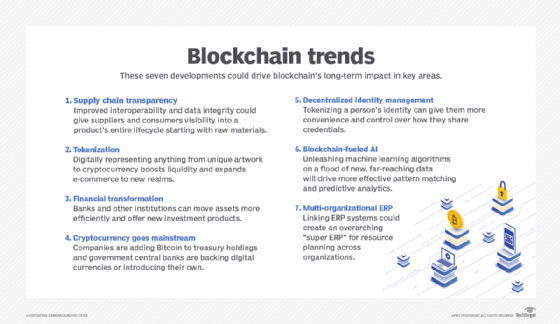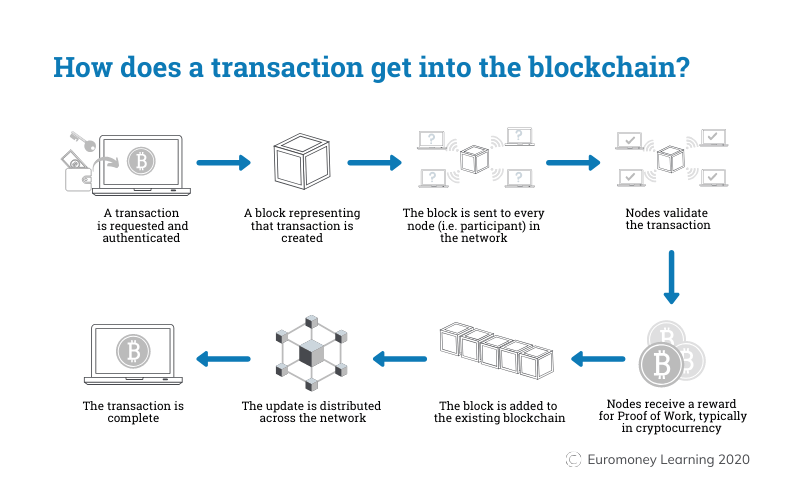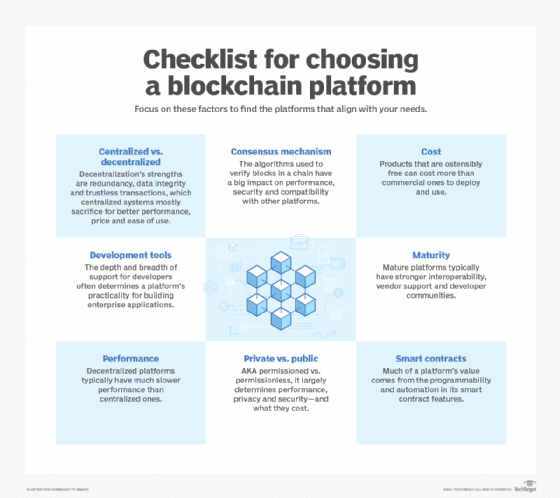How Blockchain Technology Works – 9 Growing List of Industry Using Blockchain


Blockchain technology is now the most futuristic technology in the market as it associates with the major functioning of our daily life. It helps businesses to enhance their business operations across the globe and generate better results of growth and revenue streams.
Initially, people considered blockchain technology dedicated to bitcoin, but it is more than that. Blockchain technology also caters to other digital currencies in its system. A blockchain is basically a chain that comprises blocks.
Each block contains critical information about multiple transactions and is recorded with a different hash. Hash is another element that helps to provide a unique address for each block. If any modification occurs in the block, a new hash will be generated to secure its uniqueness.
Pheww! That is how blockchain technology works. The working process helps you to recognize the importance of blockchain technology when it comes to making any transaction secure. Blockchain is popular for security purposes, and the industry welcomes making its app and software safe and protected from hackers.

In this article, you will completely interact with the industries where blockchain is used and help businesses run their operations successfully. Let’s dig deeper to know blockchain apps and software use cases in the industries.
| Major Takeaways: A blockchain is a particular kind of centralized database that varies from other databases in that it saves data in blocks that are subsequently connected via cryptography. A new block is created as each new piece of data arrives. The data are chained together in chronological sequence after the block has been filled with information and is attached to the block before it. Although other kinds of information may be maintained on a blockchain, a transaction ledger has been its most popular usage so far. Blockchain is utilized in the context of Bitcoin in a decentralized manner, ensuring that no user or organization has power but that all users collectively maintain control. Since decentralized blockchains are immutable, the data placed into them cannot be changed. It implies that transactions made using Bitcoin are publicly visible and permanently recorded. |
Read more: Blockchain Technology: A Technology for Building Blocks for Databases
Blockchain Use Cases in Different Industries
Banking & Finance is a critical industry that requires striking security in their software and solution. There are other multiple sectors within the banking & finance sector that need blockchain to run their function.
International Payments
It is the common practice of transferring payments from one country to another or from one region to another. But what if they are not secured? Why are people confident in sending their incomes to their homes across the border?
Here are secure payment methods that are encrypted with blockchain security. Digital payments make our life easier, and business owners who make huge payments to vendors or third parties. They have to pay bills through the banking services, and they actually trust them when they hand over the amount as they safely reach the concerned person.
The automated process of making International payments requires a foolproof way only delivered by blockchain. It makes it ideal for money transfers and international payments.
For instance, Banco Santander introduced the world’s first blockchain-based money transfer service in April 2018. The “Santander One Pay FX” service enables clients to send money internationally the same day or the day after using Ripple’s xCurrent.
Capital Market
Systems built on the blockchain might potentially enhance capital markets. The benefits that blockchain technologies provide to capital markets comprise some of the following, according to a McKinsey report:
- the quickening of clearance and settlement
- unifying audit trail
- operational upgrades
The blockchain-based startup Axoni was established in 2013 to enhance the capital market. Axoni most recently announced the creation of a distributed ledger network to manage stock swap transactions. This network will allow both sides of an equity swap to remain synced throughout the swap’s lifespan and communicate changes to one another in real-time.
Money Laundering
Blockchain plays a vital role in smuggling or money laundering cases. As the blockchain-based encrypted software and apps strictly follow the privacy regulations, it also checks every detail of a person who transfers the money or whom to transfer with their accounts details.
Insurance Claim
Smart contracts are maybe the biggest blockchain use for insurance. Customers and insurers may manage claims clearly and securely thanks to these contracts. Since the blockchain would reject numerous claims on the same accident, all contracts and claims could be stored there and verified by the network. It would remove any claims that were not genuine.
For instance, OpenID, a network developed by the American Association of Insurance Services and IBM on the IBM Blockchain Platform, automates insurance regulatory reporting and streamlines compliance procedures.
Read More: How Blockchain Technology Is Transforming The Cybersecurity
P2P transaction
Transaction within the country or region may not be difficult, but restriction occurs when it goes beyond the boundaries. Some institutions limit their services, a few are not trustworthy, and people are not very happy to give their personal and financial details over there.

Supply Chain Management
Blockchain is ideally suited for activities like real-time tracking of items as they travel and change hands across the supply chain because of its immutable ledger. Using a blockchain expands the possibilities available to businesses that deliver these items.
Events related to a supply chain can be queued up using entries on a blockchain, such as assigning recently received items to various shipping containers. Blockchain offers a fresh and dynamic way to arrange monitoring data and utilize it.
Healthcare
General information like age and gender, as well as perhaps more basic medical history information like vaccination records or vital signs, are examples of health data suited for blockchain. None of this data by itself could be used to specifically recognize any one patient, allowing it to be placed on a public blockchain that many people could view without raising any privacy issues.
Blockchain can link these devices with a person’s health data as specialized connected medical devices grow more prevalent and more closely associated with it. Devices will be able to add the generated data to individual medical records and keep it on a healthcare blockchain. The siloing of the data that linked medical devices produce is a major problem right now, but blockchain could be the link that connects those silos.
Government
Adopting digitalization is another thrilling factor. With the utmost technology, blockchain also makes its name on the list. Blockchain technology simplifies securing public data, digital registration entries, taxes, taxpayers’ details, etc.
In general, blockchain can improve governmental organizations’ security and transparency. Dubai intends to completely rely on blockchain technology by 2020 for all aspects of its administration, making all of its services accessible on the blockchain.
Read More: Blockchain Development – Top 10 Programming Languages To Look Utilize
Voting Management
Voter fraud can be eliminated by blockchain technology—the majority of voters cast ballots in person or by mail in a typical election. A local authority must then count the votes. Online voting is feasible in this case as well, but just like in the other businesses we’ve mentioned, difficulties with fraud occur since a central authority is utilized.
Thus, utilizing blockchain technology becomes the best option. Here, voters may conveniently cast ballots online without disclosing their identity. Because each ID can only be connected to one vote, blockchain technology allows for the most precise counting of ballots. With blockchain technology, fraud is virtually impossible. Thus it cannot happen. Additionally, a vote recorded in a ledger cannot be altered or removed.
Blockchain technology can potentially increase security while also simplifying the voting process. Blockchain technology would be impenetrable to hackers since they couldn’t modify other nodes even if they had access to the terminal. Each vote would be associated with a single ID, and since it would be difficult to produce a false ID, election officials could count ballots more quickly and accurately.
Cybersecurity & Data Management
As previously mentioned, blockchain is very helpful for record management since its central encryption eliminates multiple entries, fake entries, and similar issues. The possibility of a single point of failure is eliminated, which is blockchain’s main benefit in cybersecurity. Additionally, blockchain technology offers anonymity and end-to-end encryption.
A blockchain is a fantastic tool for storing massive data because of its irreversible nature and because every computer connected to the network constantly confirms the data stored there.
Media & Communication
Media firms are already using blockchain technology to combat fraud, cut expenses, and even safeguard the Intellectual Property (IP) rights of material, such as music recordings. MarketWatch projects that by 2024, the worldwide market for blockchain in media and entertainment would be worth $1.54 billion.
Eluvio, Inc. is one platform that has captured attention for using blockchain for media. Eluvial Content Fabric, formally introduced in 2019, leverages blockchain technology to let content creators manage and distribute premium video without the aid of content delivery networks to customers and business partners.
Additionally, media behemoth MGM Studios has chosen the platform for “global streaming to online, mobile, and TV everywhere audiences of “certain IP.”
Real Estate
Every five to seven years, the typical homeowner will sell their house, and the typical person will move close to 12 times over their lifetime. Blockchain might undoubtedly be useful in the real estate industry, given the movement volume there. By immediately confirming finances, it would speed up house sales. Thanks to encryption, it would also decrease fraud and provide transparency throughout the whole selling and buying process.
Record Management
Federal, state, and municipal governments are in charge of keeping track of personal information on citizens, such as dates of birth and death, marital status, and property transfers. However, handling this data may be challenging, and some records remain on paper.
Additionally, residents are occasionally required to physically visit their local government offices to request changes, which is time-consuming, pointless, and annoying. Blockchain technology has the potential to streamline recordkeeping processes and enhance data security.
Bottom Line
So, the list mentioned above of industry gives us a major goal of adopting Blockchain development technology, and they effectively use it to store data, secure management systems, restore a huge amount of database, and much more that helps blockchain apps to run.
If you are interested in building a blockchain app based on blockchain development, you need to hire an expert blockchain development company. It is also observed that Blockchain technology has a security risk and can not be trusted as a tamper-proof technology.

That’s why it is not the child’s game to create a blockchain app, but experienced professionals who know this technology’s thick and thins can take over it. No look further; MMCGBL helps you to have an app that is a secure, futuristic, and tamper-proof blockchain solution for your long-term goals.
We assure you that the proof of our previous work makes our clients satisfied. Hire a team that can easily collaborate with you, understand your business goals, and helps you to grow your business.



